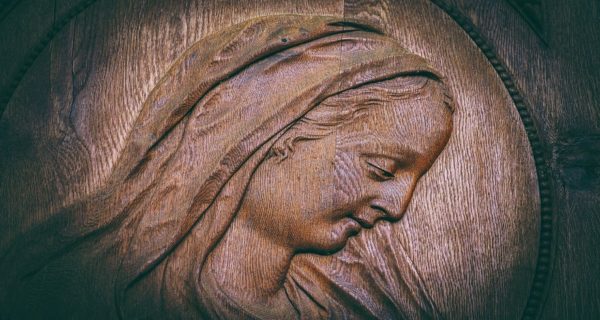By Meagan McKinstry
I am not a Catholic, so the saints have never played much of a role in my religious practice. While many of their names are familiar to me, and I know a few of their stories, I do not pray to the saints, nor do I venerate them in any particular way. Nevertheless, there is one saint I particularly admire: Saint Maria Goretti.
For the benefit of anyone who may not know, I’ll begin by sharing Maria’s story. In 1902, when Maria was only eleven years old, she was brutally murdered by a neighbor. The neighbor, a young man almost twice her age, stabbed Maria multiple times when she refused to submit to him sexually. Despite the horrific act of violence against her, which claimed her life not long after, Maria forgave her killer before her death.
Those who know me well will likely find my admiration for Maria peculiar, given that Maria is the patron saint of, among other things, chastity and purity. It is true that I do not strive to live by those virtues (though I more or less do so anyway, strictly incidentally) and in fact believe that the teaching of those virtues can be actively harmful. Nevertheless, Saint Maria Goretti is important to me for other reasons.
Approximately one year before I first learned about Maria Goretti at age eighteen, I had been taken advantage of by a slightly older male peer. I won’t go into the details, but the experience left me feeling deeply ashamed. I had carried guilt and confusion with me for many months, feeling as though I couldn’t tell anyone what had happened.
Then one day, I was chatting with a friend from school, who showed me a picture of her boyfriend… standing next to the man who exploited me. To this day I don’t understand how it happened, but, when I looked at the picture, my friend saw something in my eyes and immediately realized what this man had done to me. She told me he had taken advantage of her, too, and she encouraged me to tell my story to adults who could do something about it. This was very frightening for me, because I was afraid of getting in serious trouble, but my friend supported me throughout the process.
Not long afterward, my friend, who is a Catholic, told me about Saint Maria Goretti. In the midst of the pain I was feeling, I was extremely affected by the fact that Maria was able to forgive her attacker. I was amazed that a child could forgive someone who treated her so horribly. What Maria’s neighbor did to her was, frankly, unforgivable, and yet she forgave him without hesitation. That was astounding to me.
Even so, I don’t remember exactly why I felt such a connection to Maria Goretti at that time. I was not yet a Christian, so I didn’t attach any religious significance to the concept of forgiveness back then. Looking back, I imagine that I probably saw Maria’s ability to forgive as a promise that I could one day find peace regarding what was done to me. Now that I am a Christian, I believe that I must forgive those who trespass against me, so I admire Maria’s forgiveness not merely because it helps me to envision relief from a painful situation, but also because she serves as a role model for me regarding an important element of my religious practice.
Forgiveness is something I have had mixed results with since my conversion. Over time, I have been able to fully or partially forgive many people, but I have greatly struggled to forgive those I have never met. I frequently feel hatred toward people who hold or advocate for political views and policies that I believe are harmful, and I have not yet been able to let go of this hatred. I think the hatred and anger are rooted in fear – fear that, if these people are successful in their advocacy, the harmful policies they support will result in terrible suffering for millions.
While my negative feelings toward those who disagree with me therefore originate from a noble place – a desire to minimize human suffering – I cannot continue to hold such hate in my heart. Christ commanded that we love one another, yet there are presently many, many people whom I do not love. I want to forgive as Christians are called to forgive, but I fear I am very far from that goal at present.
This is where Saint Maria Goretti remains relevant for me today. Amid my struggle with sinful thoughts, Maria Goretti will show me that even the most unspeakable acts can and should be forgiven. Her deep religious faith will remind me that my efforts are not merely an attempt to comply with an abstract rule, but an absolute necessity if I wish to follow Christ – for I cannot claim to love God if I do not love His children.
In Saint Maria Goretti, I see that I can achieve a higher form of love. My love is currently not enough, but it can be. And I know young Maria will walk with me as I strive for the forgiveness our Lord requires.

